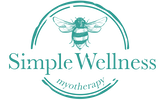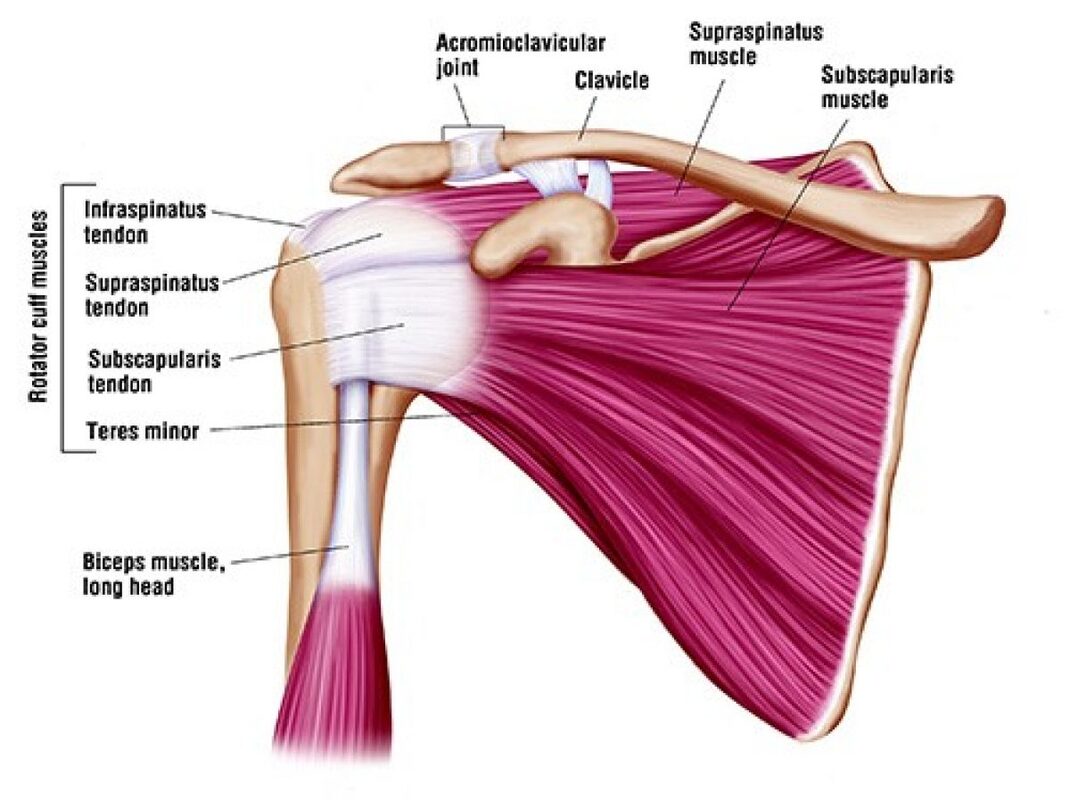|
By Duke Autret, Myotherapist In this article we will discuss Shoulder Impingement and Rotator cuff strains together since although there are distinctions they also have some overlap. In terms of the anatomy of the shoulder the rotator cuff consists of a group of 4 deep shoulder muscles which run from the shoulder blade, across the ball and socket joint of the shoulder (Glenohumeral Joint) and attach into the ball part of the upper arm bone (Humerus). This group, collectively known as the rotator cuff is indeed a ‘cuff’ that sits around the shoulder joint and which supports the muscle actions of rotating the ball in the socket at this joint, however, in reality the rotator cuff’s function is more involved with the stabilisation of the Glenohumeral joint rather than its rotation. Another muscle that we will look at here is the Biceps of your upper arm. A well known muscle for sure, its function is to show off how strong you are… and more specifically, to bend your elbow. They are actually two muscles hence ‘bi-ceps’ ('bi' indicating 'two', and 'ceps' indicating 'heads') and it’s generally the inside bicep (biceps long head) muscle which can be implicated when it comes to shoulder impingement syndromes. Image sourced from https://www.orthobethesda.com/blog/rotator-cuff-disorders-the-facts/
So what are the overlaps and distinctions of these two conditions? Generally speaking, the rotator cuff strain refers to some tearing (or micro-tearing) of the muscle/s or tendon/s and graded 1-3 depending on the severity, and is mostly the result of an trauma incident (an injury sustained while using the arm or preventing a fall etc). And since we are discussing the rotator cuff it would want to be further determined which of the 4 muscles or combination thereof is/are involved. Now ‘Shoulder Impingement’ on the other hand, can also be graded similarly however tends more to be the tendons of either the Biceps long head muscle and/or one of the rotator cuff muscles that are implicated via impingement (being pinched) between the bones of the ball of the upper arm and the shoulder blade when lifting or using the arm above shoulder or head height, and usually is a gradual onset that has to do with a change in the biomechanics (movement patterns) of the affected shoulder. When dealing with rotator cuff strains in the acute phase we will advise you on the care options and may work on the adjacent regions compensating for the injury as well and light treatment to the area itself to support its healing. Our plan in early stage care is to reduce pain and restore mobility, while also supporting the stability of the joint while the stabilising muscles are recovering. This can mean our treatment at this stage includes things like gentle manual therapy to reduce pain and inflammation, gentle mobilisation and passive movements, and taping for stability and to let those injured muscles have a chance to recover. In the later stages we apply more direct work on the specific rotator cuff muscles to ensure the minimisation of any scarring in the muscle tissues and promote the fullest possible recovery. This is where we start to see the sensitivity of your shoulder has already dropped, and we can start to provide some strengthening protocols for you to rebuild the conditioning of your shoulder. Of course, this is always going to be dependent on your unique situation, and we'll find appropriate treatment options for each stage of your recovery. Theres no one size fits all with this. The treatment plan will also vary depending if your injury is within the muscle fibres or if there is more tendon involvement, whether that be Rotator cuff tendons or Biceps. We will provide you with additional support for integrating movements and exercises to rehab them back to their functional strength. Tendons can take some time to completely recover, and need to be gradually loaded and strengthened. Personally I find working with shoulder injuries satisfying as they are one of the more complex joints in the human body with lots of movement possible but where so many different things can go awry, and I enjoy seeing them regain all that movement potential. If this has left you wondering about either of these conditions applying to you and you're looking for some help please feel free to come see me at Simple Wellness Myotherapy in Rowville. I'm available on Wednesdays, Fridays and Sundays - you can find a time with me online or just give us a call on 03 8204 0970 and we can find you a time that suits and book you in over the phone. |
Meet Our Team
We have a team of great practitioners available 7 days a week at our Rowville clinic. Archives
July 2024
Categories
All
|
Got a question about Myotherapy?
Contact Mel by phone, email or Facebook
|
Simple Wellness Myotherapy & Remedial Massage Clinic
Shop 12B 150 Kelletts Rd Rowville VIC 3178 |
Phone us on
03 8204 0970 |


 RSS Feed
RSS Feed